Blog
Why Does My Yorkie Want to Eat Grass?
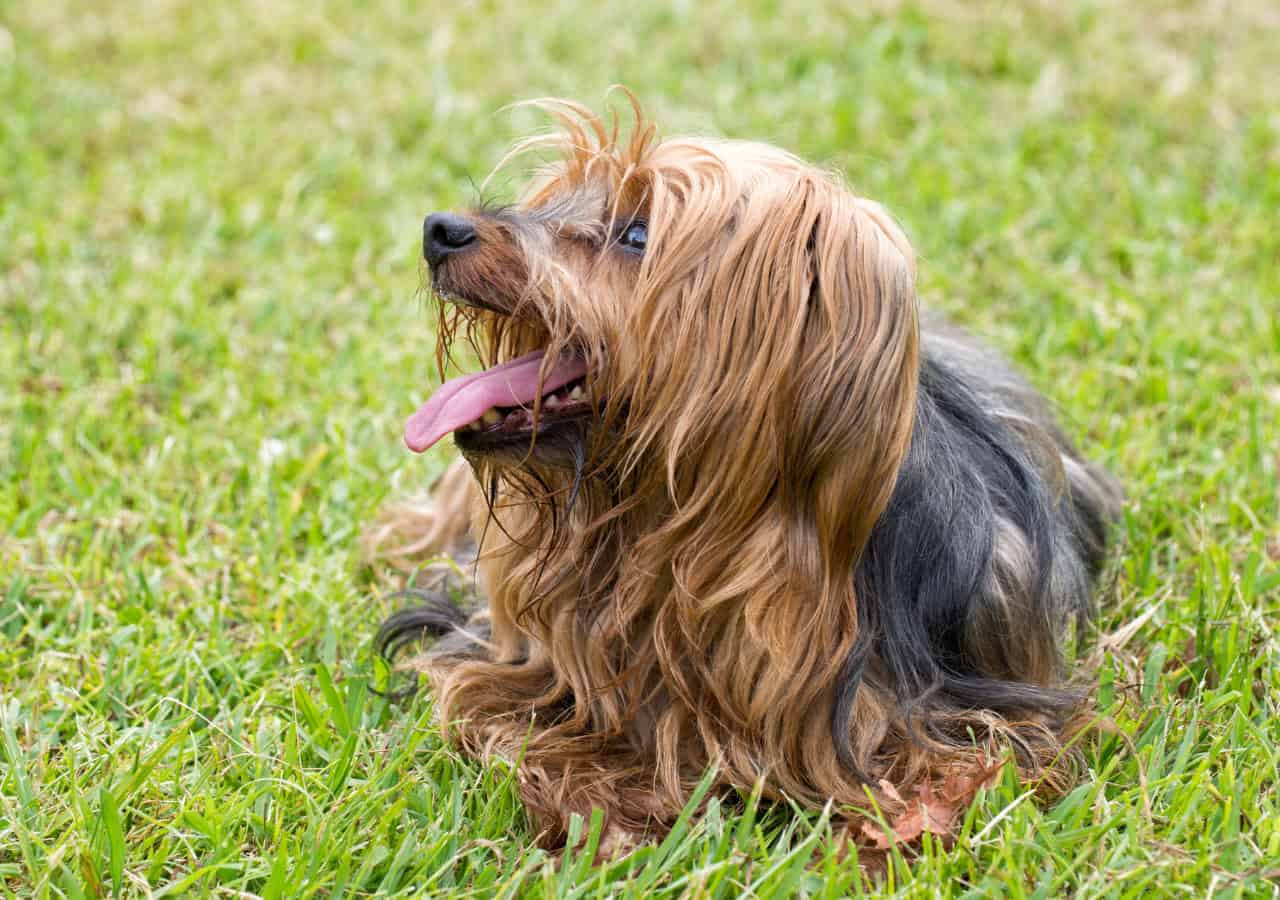
If you’re a proud Yorkie owner, you’ve likely experienced the bewilderment of seeing your adorable pup munching on grass like it’s a gourmet meal. It’s a common behavior, but it can leave many dog parents scratching their heads and wondering, “Why is my Yorkie eating grass?” Let’s dive into this intriguing topic and uncover the reasons behind this green craving, as well as how to handle it.
The Curious Case of Yorkies Eating Grass
Yorkie eating grass is a phenomenon many pet owners encounter. While it might seem odd, it’s not uncommon. Dogs, including Yorkies, sometimes exhibit this behavior for various reasons. Understanding these reasons can help you better address the issue and ensure your furry friend’s health and happiness.
Natural Instincts and Ancestral Behavior
One of the most straightforward explanations is that eating grass is a natural instinct inherited from their wild ancestors. Wolves and wild dogs often consume grass to help with digestion or to induce vomiting to clear out their systems. Your Yorkie eating grass might just be following these ancient instincts.
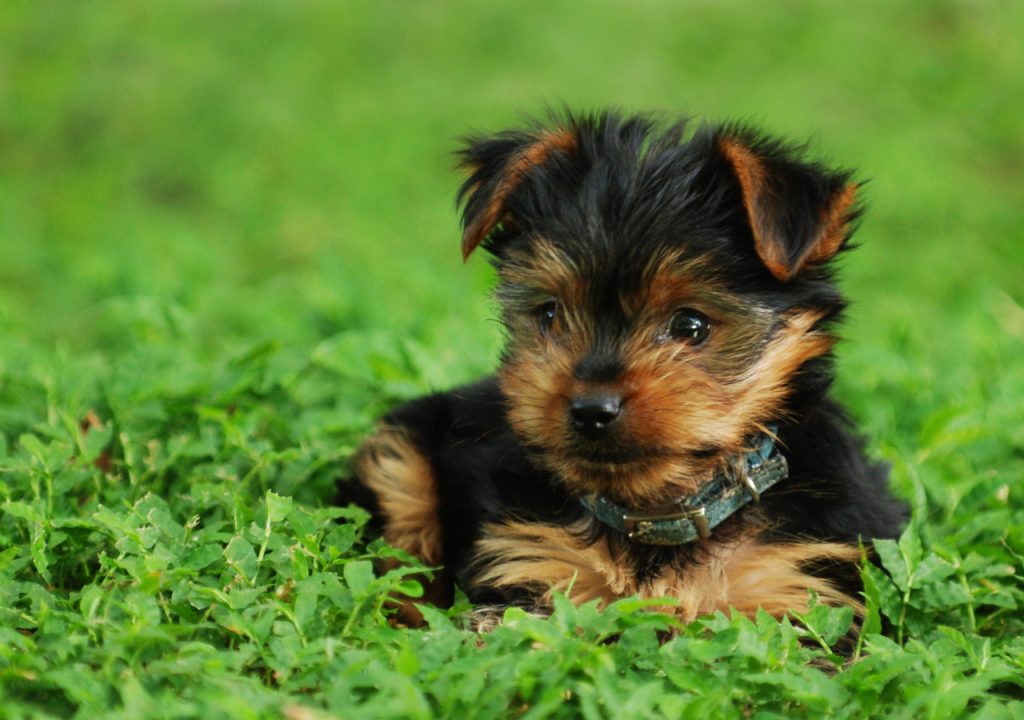
Health-Related Causes
When it comes to the health of our furry friends, particularly Yorkies, understanding why they might be eating grass can sometimes point to underlying health issues. Here are some key health-related causes behind your Yorkie eating grass.
Upset Stomach and Vomiting
One of the more common reasons for a Yorkie eating grass and vomiting is an upset stomach. Grass can help induce vomiting, which might be your dog’s way of trying to get rid of something that’s bothering them. If you notice that your Yorkie eats grass and then vomits, it’s a sign that their stomach is unsettled. This behavior can sometimes be linked to other issues like Yorkie diarrhea, indicating gastrointestinal distress.
Yorkies, like many dogs, have a natural instinct to consume grass when they feel nauseous. The fibrous texture of the grass irritates the stomach lining, which can help expel whatever is causing the upset. This self-cleansing mechanism is nature’s way of helping dogs feel better. However, if this becomes a frequent occurrence, it could be a sign of a more persistent gastrointestinal issue that needs veterinary attention.
Parasites and Infections
Another health-related cause could be parasites or infections. If your dog is experiencing discomfort from parasites like worms or an infection, they might eat grass to soothe their stomach or try to alleviate the discomfort. Parasites can cause significant gastrointestinal distress, leading to symptoms such as throwing up, diarrhea, and a general sense of unease. Regular vet check-ups and proper deworming schedules are crucial in preventing these issues.
A routine fecal exam can help identify if your Yorkie has any parasitic infections. Treating these promptly not only alleviates discomfort but also prevents the spread of parasites to other pets or even humans. Maintaining a clean living environment and following a strict deworming protocol can keep these unwelcome guests at bay.
Nutritional Deficiency
Sometimes, a Yorkie eats grass due to nutritional deficiencies. Even though commercial dog foods are formulated to be balanced, they might not always meet the specific needs of every individual dog. If your Yorkie feels something is lacking in their diet, they might turn to grass in an attempt to supplement their nutrition. This behavior can be particularly observed if their diet lacks sufficient fiber, vitamins, or minerals.
If you suspect that your Yorkie is eating grass due to a nutritional deficiency, it’s essential to consult with your vet. They might recommend a dietary adjustment or supplements to ensure your Yorkie is getting all the necessary nutrients. Adding more fiber-rich foods to their diet, such as vegetables and specially formulated dog foods, can help address this issue.
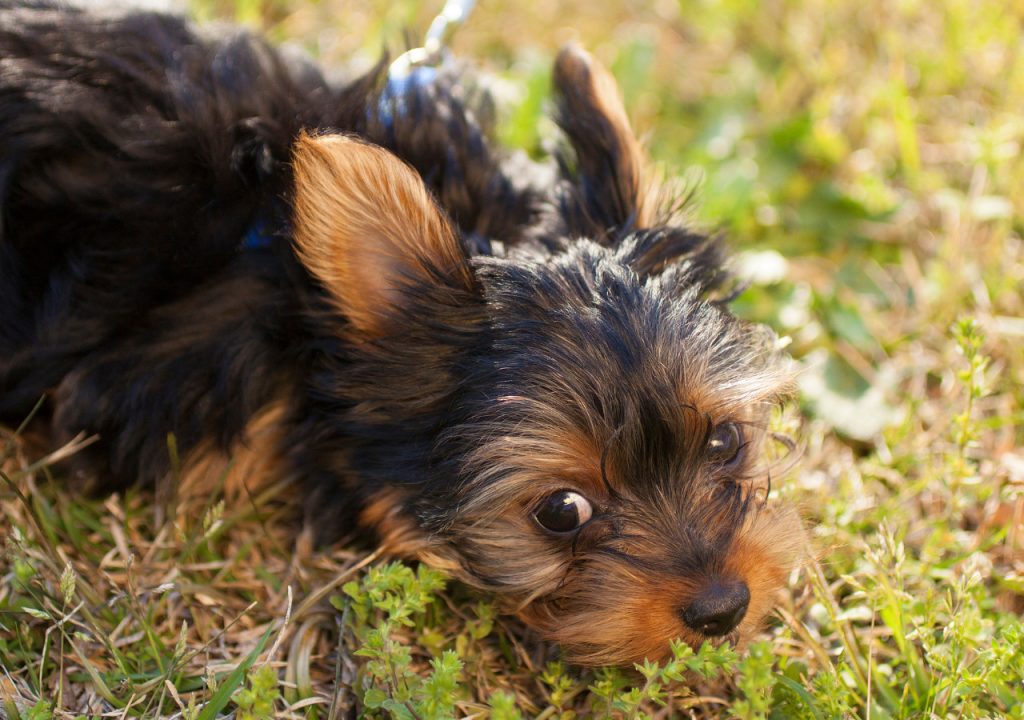
Hunger
Believe it or not, Yorkie eating grass could also be a sign of hunger. If your Yorkie isn’t getting enough food or isn’t fed at regular intervals, they might resort to eating grass to fill their stomach. This is particularly common in highly active dogs or those with high metabolic rates who might need more frequent feeding.
Ensuring that your Yorkie is fed a well-balanced diet at regular intervals can help prevent hunger-induced grass eating. It’s also worth considering feeding them smaller, more frequent meals throughout the day instead of one or two large meals. This can keep their energy levels stable and reduce the likelihood of them seeking out grass as a filler.
Behavioral Reasons
Boredom and Anxiety
Dogs are curious creatures, and sometimes, eating grass is simply a way to pass the time or alleviate boredom. If your Yorkie doesn’t get enough mental or physical stimulation, it might turn to grazing on grass as a form of entertainment. Similarly, anxiety and stress can also lead to this behavior. Ensuring your Yorkie gets enough exercise, playtime, and mental challenges can help reduce these instances.
Attention-Seeking Behavior
Believe it or not, some dogs eat grass to get your attention. If your Yorkie eating grass prompts you to react, they might learn to repeat this behavior just to get a response from you. It’s important to observe your reactions and try not to encourage this behavior inadvertently.
Yorkie Eating Grass Treatment
Now that we’ve covered the potential causes, let’s talk about how to address this behavior. Treatment varies depending on the underlying reason behind your Yorkie eating grass. Here’s a more in-depth look at the various approaches you can take.
Dietary Adjustments
If a dietary deficiency is suspected, consulting with your vet is the best course of action. They might recommend a change in diet or adding supplements to ensure your Yorkie is getting all the necessary nutrients. Incorporating more fiber-rich foods can also help if the grass-eating is related to a need for more fiber.
- Balanced Diet: Ensure your Yorkie’s diet is balanced and contains all essential nutrients. High-quality commercial dog foods usually meet these needs, but sometimes individual dogs require specific adjustments.
- Fiber-Rich Foods: Adding vegetables like carrots, green beans, or specially formulated high-fiber dog foods can help improve your dog’s digestion and reduce the need to eat grass.
- Supplements: Your vet might suggest supplements such as vitamins, minerals, or probiotics to help maintain gut health and overall well-being.
- Regular Feeding Schedule: Maintaining a consistent feeding schedule can prevent hunger-driven grass eating. Consider feeding smaller, more frequent meals to keep your Yorkie’s hunger at bay.
Regular Vet Check-ups
Regular veterinary visits are essential. Your vet can check for parasites, infections, or any other health issues that might be causing your Yorkie to eat grass. Addressing any medical conditions promptly will help reduce this behavior.
- Parasite Control: Regular deworming and parasite control measures are crucial to prevent gastrointestinal discomfort that might lead to grass eating.
- Health Monitoring: Routine check-ups can detect early signs of infections or other health issues that might cause your Yorkie to eat grass.
- Vaccinations and Preventive Care: Keeping your Yorkie up to date with vaccinations and preventive care can reduce the risk of diseases that could contribute to this behavior.
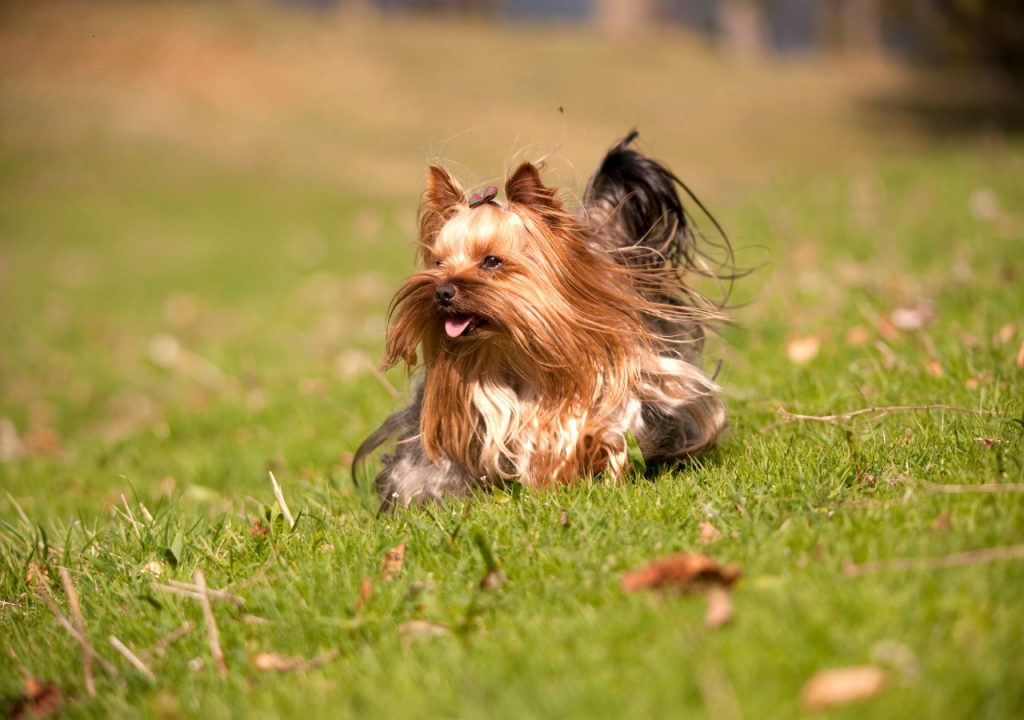
Behavioral Modification
For boredom or anxiety-related grass-eating, increasing your Yorkie’s exercise and playtime can make a big difference. Puzzle toys, interactive games, and training sessions can keep your dog mentally stimulated and less likely to turn to grass for entertainment. If anxiety is a factor, calming techniques such as providing a safe space, using anxiety wraps, or even consulting with a professional trainer might be necessary.
- Exercise and Playtime: Ensuring your Yorkie gets plenty of physical activity can prevent boredom and reduce anxiety. Daily walks, play sessions, and even agility training can be beneficial.
- Interactive Dog Toys: Providing a variety of interactive dog toys can keep your Yorkie engaged and mentally stimulated. Toys that dispense treats, puzzle games, and chew toys are excellent choices.
- Mental Stimulation: Incorporate activities that challenge your Yorkie’s mind. Teaching new tricks, obedience training, and scent games can keep your dog busy and content.
- Socialization: Allow your Yorkie to interact with other dogs and people. Social activities can reduce anxiety and provide an outlet for their energy.
- Calming Techniques: If anxiety is a significant factor, consider calming aids such as anxiety wraps, calming sprays, or even natural supplements. Creating a safe, quiet space where your Yorkie can retreat can also help.
- Professional Training: In cases where grass eating is a persistent problem, consulting with a professional dog trainer or behaviorist can provide tailored strategies to modify the behavior.
Keeping Your Yorkie Busy
A busy Yorkie is a happy Yorkie. Providing plenty of activities can help keep your Yorkie mentally and physically stimulated, reducing the likelihood of grass eating due to boredom.
- Interactive Toys: Invest in a variety of interactive toys that challenge your Yorkie’s mind and keep them entertained. Toys that require problem-solving, such as treat-dispensing puzzles, are great for mental stimulation.
- Play Sessions: Engage in regular play sessions with your Yorkie. Games like fetch, tug-of-war, and hide-and-seek are fun and can help burn off excess energy.
- Training and Tricks: Teaching your Yorkie new tricks or commands not only keeps them busy but also strengthens your bond. Use positive reinforcement techniques to make training sessions enjoyable. We recommend you to read our blog post about the best frozen treats you can give your Yorkie during the summer season! They represent a healthier option than commercial ones.
- Agility Training: Setting up a mini agility course in your backyard can provide excellent physical and mental exercise. Jumping through hoops, navigating tunnels, and balancing on beams can be both fun and beneficial for your Yorkie.
- Walks and Outdoor Exploration: Regular walks and outdoor exploration allow your Yorkie to experience new sights, sounds, and smells. Varying your walking routes can keep things interesting and prevent monotony.
Making Your Yorkie Pleasantly Tired
Ensuring your Yorkie gets enough physical activity can help make them pleasantly tired and less likely to engage in undesirable behaviors like eating grass.
- Daily Walks: Regular walks are essential for burning off energy. Aim for at least two walks a day, adjusting the duration based on your Yorkie’s energy levels.
- Playtime: Dedicated playtime sessions can help expend energy. Playing fetch or letting your Yorkie run in a safe, enclosed area can be particularly effective.
- Interactive Play: Use toys that encourage active play, such as balls, frisbees, and interactive toys that move or make noise.
- Training Sessions: Incorporate short, frequent training sessions throughout the day. These can be mentally taxing and help tire out your Yorkie.
- Dog Sports: Consider enrolling your Yorkie in dog sports like agility, flyball, or obedience competitions. These activities provide physical and mental challenges that can be very rewarding for active dogs.
By addressing the underlying causes of grass eating and keeping your Yorkie busy and pleasantly tired, you can help reduce this behavior and ensure your furry friend stays happy and healthy. So next time you see your Yorkie eating grass, you’ll have a better understanding of why they might be doing it and what steps you can take to keep them in tip-top shape.
What Should I Do if My Dog Eats Grass?
Seeing your Yorkie eating grass can be concerning, but it’s not always a cause for alarm. Here are some steps to take if you notice this behavior:
- Monitor Their Health: Keep an eye on your Yorkie’s overall health. If they’re eating grass and also showing signs of vomiting, diarrhea, lethargy, or any other symptoms, it’s time to visit the vet.
- Evaluate Their Diet: Ensure your Yorkie is on a balanced diet. Consider consulting with your vet about potential dietary adjustments or supplements.
- Increase Mental and Physical Stimulation: Make sure your Yorkie gets enough exercise and mental challenges. This can reduce boredom and anxiety-driven grass eating.
- Regular Vet Visits: Keep up with regular vet check-ups to catch any potential health issues early.
- Avoid Pesticides and Chemicals: Ensure that the grass your Yorkie has access to is free from pesticides and chemicals, as these can be harmful if ingested.
Connection Between Yorkie Diarrhea and Vomiting
It’s worth noting that Yorkie eating grass and vomiting can sometimes be related to gastrointestinal issues such as Yorkie diarrhea. If your dog is experiencing both symptoms, it’s likely a sign of digestive distress. Common causes can include dietary indiscretions, infections, or even more serious conditions like inflammatory bowel disease. Consulting with your vet to get a proper diagnosis and treatment plan is crucial.
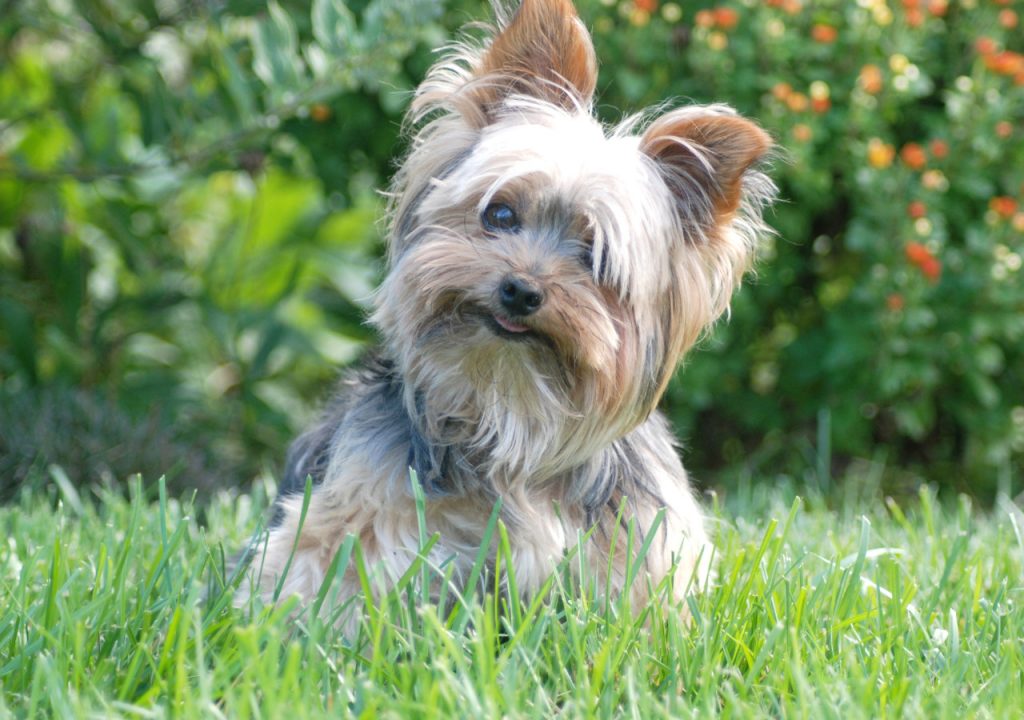
Final Thoughts
Understanding why your Yorkie wants to eat grass involves considering various factors, from natural instincts to dietary needs and behavioral issues. While it might be unsettling to see your pup grazing like a little lawnmower, it’s often a manageable behavior with the right approach.
Pay attention to their diet, ensure regular vet visits, and provide plenty of mental and physical stimulation. Those are the things that can help reduce the frequency of your Yorkie eating grass. And remember, while grass-eating is common, it’s always best to consult with your vet if you have any concerns about your dog’s health.
